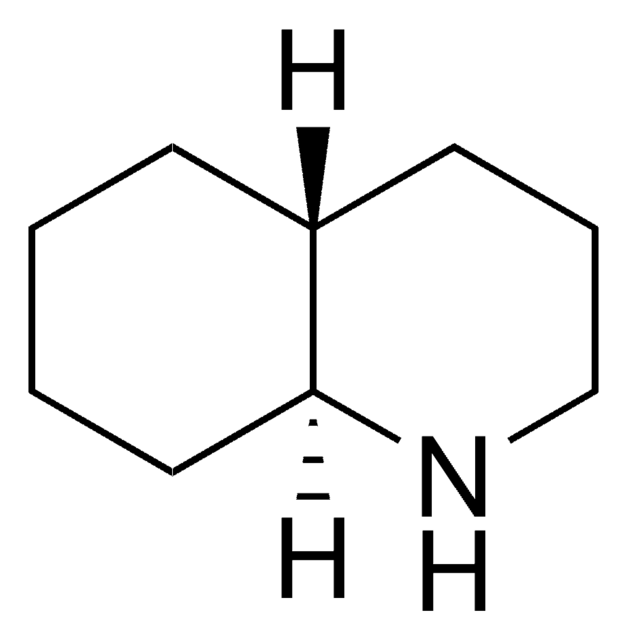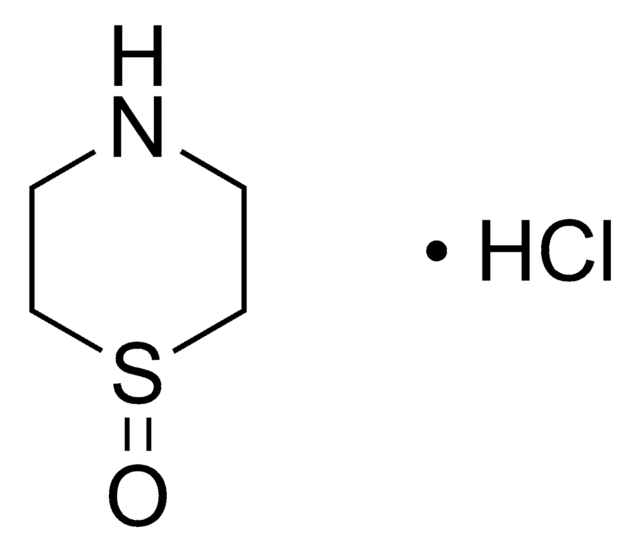262595
Perhydroisoquinoline
96%
Synonyme(s) :
Decahydroisoquinoline
About This Item
Produits recommandés
Niveau de qualité
Pureté
96%
Composition
(mixture of cis and trans)
Indice de réfraction
n20/D 1.4904 (lit.)
Point d'ébullition
211-214 °C (lit.)
Densité
0.936 g/mL at 25 °C (lit.)
Chaîne SMILES
C1CCC2CNCCC2C1
InChI
1S/C9H17N/c1-2-4-9-7-10-6-5-8(9)3-1/h8-10H,1-7H2
Clé InChI
NENLYAQPNATJSU-UHFFFAOYSA-N
Description générale
Application
Mention d'avertissement
Warning
Mentions de danger
Conseils de prudence
Classification des risques
Eye Irrit. 2 - Skin Irrit. 2 - STOT SE 3
Organes cibles
Respiratory system
Code de la classe de stockage
10 - Combustible liquids
Classe de danger pour l'eau (WGK)
WGK 3
Point d'éclair (°F)
174.2 °F - closed cup
Point d'éclair (°C)
79 °C - closed cup
Équipement de protection individuelle
Eyeshields, Gloves, type ABEK (EN14387) respirator filter
Faites votre choix parmi les versions les plus récentes :
Déjà en possession de ce produit ?
Retrouvez la documentation relative aux produits que vous avez récemment achetés dans la Bibliothèque de documents.
Notre équipe de scientifiques dispose d'une expérience dans tous les secteurs de la recherche, notamment en sciences de la vie, science des matériaux, synthèse chimique, chromatographie, analyse et dans de nombreux autres domaines..
Contacter notre Service technique








